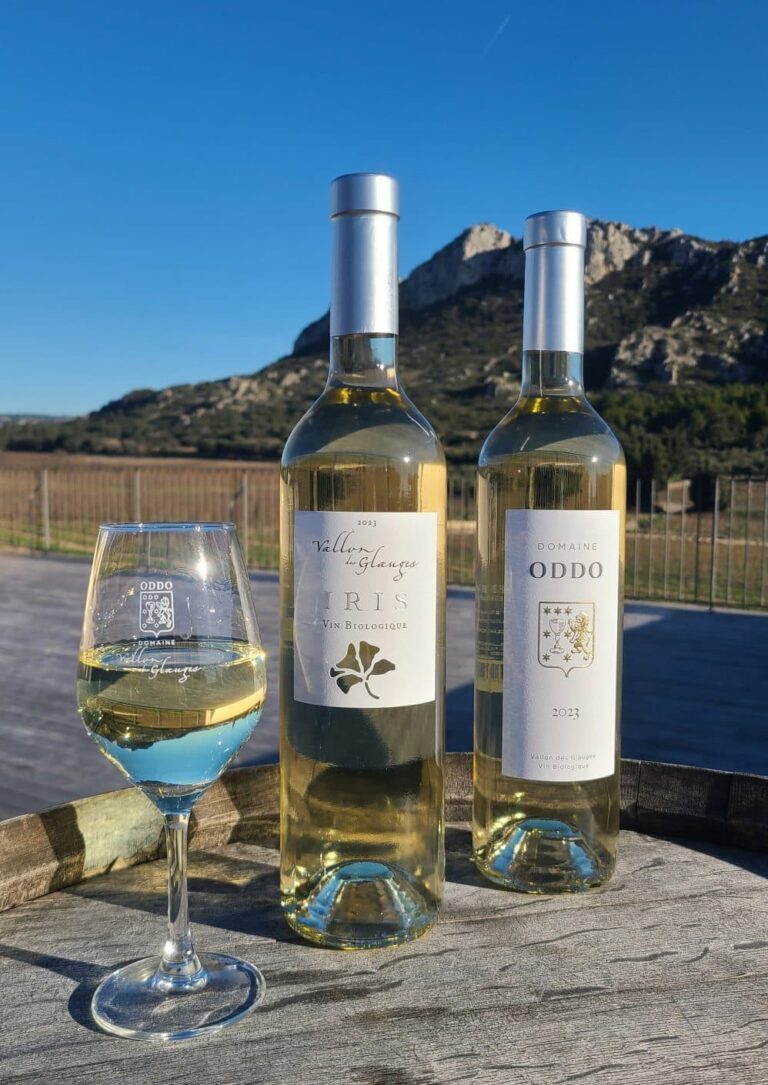Domaine ODDO Vallon des Glauges awarded "AB" label
After 3 years of organic conversion, Domaine ODDO Vallon des Glauges has received "organic farming" certification. This recognition is in line with the actions undertaken by the ODDO family and the management of the Vallon to promote committed, environmentally-friendly viticulture.
The first organic vintages, Iris blanc 2023 and cuvée ODDO blanc 2023, were bottled last December. Fruity and aromatic, these wines are available for tasting at the winery.

What is organic farming?
Organic farming is a production method that employs agricultural practices that respect natural balances. It incorporates a high degree of biodiversity, as well as the preservation of natural resources. Frequent controls, together with strict regulatory requirements, are carried out by bodies approved by the Institut national de l'origine et de la qualité. Criteria include the use of natural products containing at least 95% certified organic agricultural ingredients.
Organic wine has many advantages. It confers fine quality on the wine, preserves the terroirs, and protects the health of winemakers and consumers alike.
Organic at the heart of every stage, from tillage to vinification
Organic farming on the estate encompasses a number of different practices. These include the use of organic fertilizers, herbal tea decoctions and a specific vine pruning technique: the cordon de Royat.
Domaine ODDO Vallon des Glauges also uses controlled grassing on a large part of its 50 hectares of vines. With a total surface area of 72 hectares, the remaining 22 hectares are occupied by olive groves and Provencal maquis.
A wide variety of plants have been planted between the vines. Each of them plays a specific role in the development of our plots. Faba beans enrich the soil with nitrogen. Wheat and rye limit weed growth, as does white mustard, a genuine green manure and natural repellent.
These intercrops or inter-rows help to combat erosion in the Vallon's limestone soils, which are sometimes steep. They also provide organic matter to control weeds. Last but not least, sowing plant cover limits the vigour of the vines, which compete with the crops sown. This competition makes it possible to control the development of the vines and obtain higher-quality grapes.
The estate also boasts a number of hedges, which act as a bulwark against the wind. They provide a habitat for local biodiversity.
This sustainable and holistic approach not only protects the richness and diversity of the estate's vegetation, but also provides an ideal habitat for pollinating bees. Several beehives have been installed on the estate.
Organic winemaking
This meticulous work continues in the vat room and in the cellar, where the same care is taken during the various stages of vinification. The organic charter implies the exclusive use of natural ingredients (or inputs) listed in the specifications. Specific instructions must be followed during vinification, to guarantee the quality and traceability of the wine.
All these measures, coupled with the know-how of our teams in the vineyards and in the winery, enable us to produce exceptional, elegant, fruity wines that respect the environment.